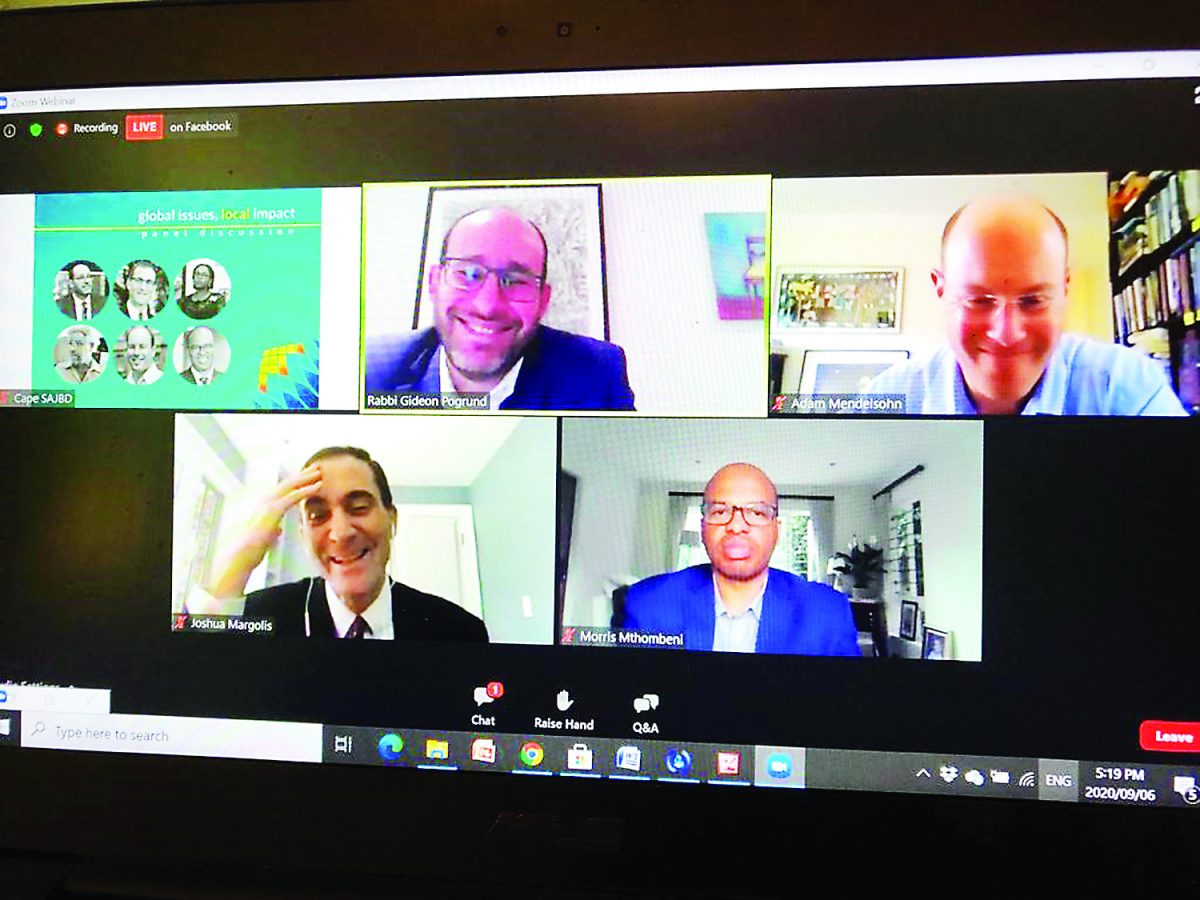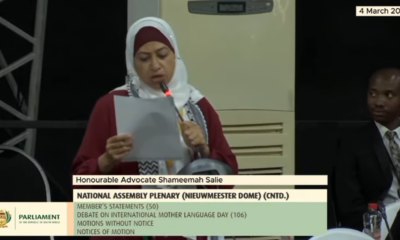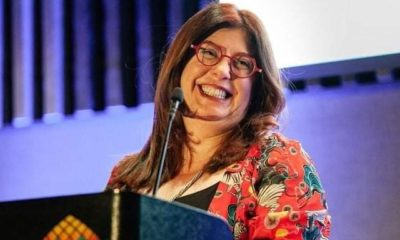
Featured Item

Community faces tough choices in post-COVID-19 world
Facing the challenges and choices of the Jewish community and greater South Africa is vital, so we can put them into perspective in a post-COVID-19 world. For this reason, the Cape SA Jewish Board of Deputies conference gathered economic, religious, and community experts for a panel discussion at its conference on Sunday.
“The thing about ‘black swan’ events – unexpected, catastrophic events – is that before they happen, we speculate about them, anticipate them, even plan for them. But as the COVID-19 crisis has proven, when a true, once-in-a-century black swan hits, it catches us all by surprise,” said Professor Adam Mendelsohn, director of the Kaplan Centre for Jewish Studies at the University of Cape Town.
Rabbi Gideon Pogrund led the discussion with Professor Joshua Margolis from Harvard Business School; SABC economics editor Thandeka Gqubule; Bishop Paul Verryn; Gordon Institute of Business Science dean Dr Morris Mthombeni; and Mendelsohn.
“Such events put our previous worries in perspective,” said Mendelsohn. “In truth, over the last five years, the Jewish community has worried a lot, which has kept a nagging question alive: What sort of future is there for Jews in South Africa? We now know that nationally the Jewish population is substantially less than half the size that it was in the early 1970s. Demographic decline is not news to the Jewish community in South Africa. To the credit of the Cape Town community, it has taken steps to plan for this. We’ve had our worries well in hand: We’ve built a sustainable and well-resourced community that offers an extraordinarily broad range of services and possesses a strong sense of coherence and solidarity.
“But COVID-19 has blindsided us all, and upset even our best-laid plans. For obvious reasons, the crisis has exacerbated our worries: Can the centre hold – politically, economically, socially – under tremendous new strains? Are we heading toward short- or long-term calamity? Here our worries as Jews and South Africans merge,” said Mendelsohn.
“Are we potentially facing a crisis of the kind that hobbled Argentina in the late 1990s, led to a surge of Jewish emigration, and then a cascade of crises within the Jewish community forced to downsize under duress?” he asked rhetorically.
Mendelsohn pointed out: “Even without a surge of emigration, the Jewish community is vulnerable in particular ways — not because I fear antisemitism as a factor in South African life, but because South African Jews are now paying the price for our economic profile. The Jewish community in South Africa, and particularly in Cape Town, is unusually exposed to the economic impact of COVID-19 because of very high rates of self-employment. Twenty-six percent of all adult Jewish South Africans are self-employed. Given the nature of our local economy in Cape Town, a good share is exposed to precisely the industries hit hardest: tourism, leisure, and entertainment. We’ll soon see if this impinges on the institutional life of a self-funded Jewish community.”
Despite this bleak assessment, he noted: “Black swan events are also moments of potential opportunity. A profound crisis upends business as usual. We may have bumbled along in the past, but we can no longer afford to do so now. Tough decisions are more difficult to defer. We have already begun to see signs of exactly this in the Jewish community. These decisions are often not popular, and may not even be the right ones, but there is new urgency. External pressures of the kind created by COVID-19 are particularly important in a Jewish community that largely operates through consensus, and is led by a cadre of lay leaders who are all volunteers.
“This leadership model makes it difficult to make unpopular decisions – why risk alienating or dividing the community? – but COVID-19 leaves little choice. We’re at one of those moments when long-deferred decisions will likely need to be made in a rush. The institutional structure of the Jewish community may look very different in a decade from how it looks now.
“There is hope of the crisis providing direction [from government] where there has long been drift … COVID-19 may reinforce a sense that we are all in this together, and may force us into new ways of thinking and acting.”
Mendelsohn described a delicate juggling act where the Jewish community will have to decide whether to direct its limited resources inwards or outwards. “While these choices are not new, COVID-19 has exacerbated them”, he said.
These points were echoed by Professor Joshua Margolis of Harvard Business School, joining the conference online from Boston, Massachusetts. Exploring the phrase attributed to Hassidic rabbi Nachman of Breslov: ‘The whole entire world is a very narrow bridge and the main thing is to have no fear at all’, Margolis noted that it is vital to acknowledge that times of transition as temporary in essence: “A bridge is not permanent and to mistake it for permanence may mean we respond inappropriately.”
He said COVID-19 has upended our world because it has undermined the very basis of trust between human beings, and also attacked our most vulnerable. Also, at the very moment we need strong leaders that bring people together; we have demagogues who highlight hatred and superstition.
However, he said there are already positive trends emerging from this time of flux, such as the acceleration of digital transformation and discussions around equality becoming priorities in the corporate world. He suggested that communities not be paralysed by fear but make use of this moment to work across generations and interest groups in order to create something new and better on the other side.
Mthombeni and Gqubule spoke to the economic challenges facing South Africa, with the latter saying that official estimates show three million people may have lost their jobs during COVID-19 in South Africa, and the country may be edging towards 50% unemployment.
Bishop Verryn described the worrying levels of poverty, gender-based violence, and xenophobia in the country, and together with the other experts, urged the Jewish community to play a role in rebuilding what will be a very broken society in a post-COVID-19 world.










